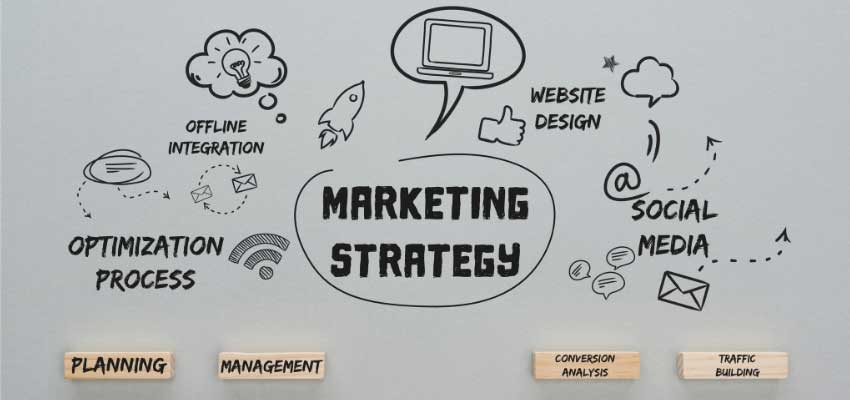Show:
How can Market Research Tools Help Your Business Grow?
The era of monopoly is over.
We have seen some of the best business brands with breakthrough products and innovations fall flat as soon as they reach the market. While failure in a business environment is imperative, understanding the reasons for failure is equally important.
Most of the new products fail because their owners focus on their gut feeling and fail to understand the importance of market research. Heinz’s failure of colored ketchup is a classic example of what lack of market research can do to your brand or new products. Designed for an adult market, the purple-colored ketchup attracted kids and faded away in six years.
To avoid such costly mistakes and gather facts about how customers are likely to interact with a new product, you require market research tools.

Think of your market research tool as GPS navigation with the right data and business intelligence; you can steer away from all the potential bottlenecks and reach your destination.
These tools can help your marketing strategy and provide valuable insights that can help you grow your business.
Without these tools, your brand will rely on instincts and anecdotal information. Still not convinced?
Let’s explore ten reasons why your brand should use a research tool.
Ready?
How can Market Research Tools Help Your Business Grow?
At every business decision point, instead of assuming that you or your product managers know what’s the right answer, head out in the world and directly ask your customers. Involve a market research tool to get answers to all your questions before embarking upon a new project. Here are ten reasons why and how such a tool can help your business scale up and prevent costly business disasters.
1. Creates effective marketing strategy
From market and competitor analysis to testing different creative ads, a market research tool is your one-stop solution to understand what your customers want. Based on the data you collect from your market analysis, you create advertisements for increased exposure. If your research reveals that your customers are active on Twitter over Facebook, you know where to advertise.
These research tools can help you understand whether your promotions and advertisements align with your market’s needs. For example, you can see how your product is perceived compared to your competitor and evaluate what they do differently to position their products in a customer’s mind.

With a great tool, you can dig deeper and uncover the important information that can help you tweak changes in your marketing strategy.
Your marketing strategy has the power to make or break your business, and it’s the depth of your market research that can prevent the failure of your strategies. It helps your brand succeed, grow and prosper.
2. Help you understand your market size
When launching a business or a new product, it’s imperative that you treat it as your baby and unwillingly fall into the trap of biasness. In the above Heinz example, the purple ketchup attracted children instead of their parents (target audience). The company failed to nail their market size and, in over-enthusiasm, created a product for adults instead of children. Had they conducted market research, they would have known their actual market size.
Market size is the total potential buyers for your services and products. From understanding your market potential of your products to ensuring your product has a market – a research tool helps you decode everything about your market size.
Having such information beforehand is a great way to create a winning business strategy and ensure you never taste failure with your new products or ventures.
3. Minimizes risk
Starting a new venture or launching a new product involves a tremendous amount of risk. You may incur losses if your product or business idea doesn’t resonate with the target audience. Instead of introducing something new to the market with your intuitions, it makes sense to opt for a research tool.
Such a tool can help you collect valuable customer data. With less than 40% of marketers globally using consumer research to drive decisions, you could stand out among your competitors by investing in a market research tool.
With such a tool in your arsenal, you will set up a business that has a high probability of generating profits.
4. Help in selling the right product
When it comes to market research, the famous lines from Jim Rohn, “If you keep doing what you’ve always done, you’ll keep getting what you’ve always got” rings true.
Why?
If you don’t evolve with your customer’s needs, your brand will likely fade away sooner or later.
Take Kodak, for example. For years, the company relied on traditional cameras, but when digital photography created ripples, Kodak still kept doing what they were good at. As a result, it’s now widely discussed in marketing case studies as a brand that didn’t sell the right product.

With a whopping 95% of new products failing, you need a research tool for your products and app development. Such a tool can help you find market opportunities and give valuable insights into customer problems to develop a product that resonates and sells in your target market.
5. Assists in customer segmentation
It collects data that can help you divide your target market and customers into smaller segments through surveys and other methods. This helps you in understanding the behavior of each segment and how each segment can influence your revenue.
These tools come in handy in providing a customized experience to every customer in your target market. The more data you collect, the more you understand your customer’s persona, and the easier it becomes to provide a personalized experience.
6. Beat the competition
Gaining a competitive advantage is essential to thriving in this current business environment. Through such a tool, you can assess the strengths and weaknesses of your competitors. Based on the data you collect, you can identify opportunities where you can outperform your competition. Market research on your competitors helps you create unique products and address problems that your competitors probably overlooked.
In short, your entire research process gives you an idea of dealing with your competition and helps you gain a competitive edge that creates a sustainable revenue stream.
7. Provides revenue projections
A market forecast or revenue projection is an essential element of market analysis. It helps in projecting your future sales, revenue, and trends in your target market. As the research provides elements of historical development along with future projections, it becomes easier for businesses to make key decisions. Using statistical techniques, you can project the data forward and help you decode information relevant to the future.
8. Measure customer satisfaction
Through various research tools, you can measure your customer’s experience with your products, services, and business as a whole. It clearly outlines whether your products were able to meet, fail or exceed their expectations. Also, it can help you decide what your target audience likes and dislikes.
The data you collect can give you a better understanding of the quality and design of your products, staff and service, market price, timeliness of delivery, and whether your product is value for money.

9. Inspires creative ideas
Through research, you can quickly isolate your customer’s motivation behind buying new products or services. It helps you understand their frustration, emotions, and expectations. With so much knowledge and data in hand, it becomes easier to create products or design marketing campaigns. Rather than beginning from a blank page and using the hit-and-trial method, these tools give you crucial information that might appeal to your target audience.
10. Measures your brand’s health
Market research tools like brand tracking are a great way to understand how well your brand is doing. It measures brand awareness, brand recall, purchase intent, and the willingness of a customer to recommend your brand. It tells you whether your brand-building efforts are fruitful and how you’re performing against your competition. It helps you benchmark against your competitors.
The final ‘GAME PLAN’
With the internet revolutionizing, every operational element of your business has seen its impact.
Even marketing has changed its form from the convention to digital. But market research is probably one area that has and will always remain the top priority and will never go out of fashion.
Market research is no longer synonymous with surveys. It has become a fuel that results in customer delight.
By understanding their values, needs, and preferences, you can attract customers and create products or services that pull in like-minded buyers.
The tool which can empower you to attract more customers is already in your hand – a market research tool. Use the data your tool collects to make data-driven business decisions, and pave the way for business growth.
A business that realizes the potential of research tools is the one that stays one step ahead. By investing in such a tool, they avoid the high cost of product failures.
Did you use any market research tools? How did it help your business grow?
Share your thoughts in the comments section.

 Return to Previous Page
Return to Previous Page








